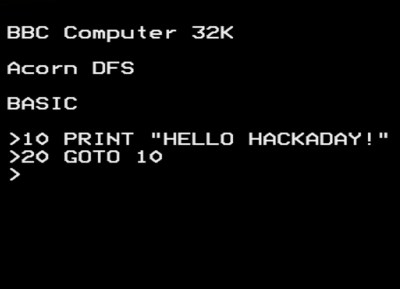It’s with sadness that we note the passing of Thomas E. Kurtz, on November 12th. He was co-inventor of the BASIC programming language back in the 1960s, and though his creation may not receive the attention in 2024 that it would have done in 1984, the legacy of his work lives on in the generation of technologists who gained their first taste of computer programming through it.

The origins of BASIC lie in the Dartmouth Timesharing System, like similar timesharing operating systems of the day, designed to allow the resources of a single computer to be shared across many terminals. In this case the computer was at Dartmouth College, and BASIC was designed to be a language with which software could be written by average students who perhaps didn’t have a computing background. In the decade that followed it proved ideal for the new microcomputers, and few were the home computers of the era which didn’t boot into some form of BASIC interpreter. Kurtz continued his work as a distinguished academic and educator until his retirement in 1993, but throughout he remained as the guiding hand of the language.
Should you ask a computer scientist their views on BASIC, you’ll undoubtedly hear about its shortcomings, and no doubt mention will be made of the GOTO statement and how it makes larger projects very difficult to write. This is all true, but at the same time it misses the point of it being a readily understandable language for first-time users of machines with very little in the way of resources. It was the perfect programming start for a 1970s or 1980s beginner, and once its limitations had been reached it provided the impetus for a move to higher things. We’ve not written a serious BASIC program in over three decades, but we’re indebted to Thomas Kurtz and his collaborator for what they gave us.
Thanks [Stephen Walters] for the tip.











